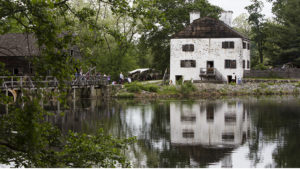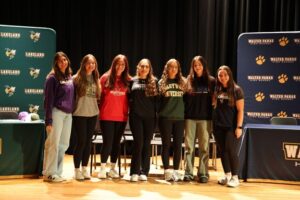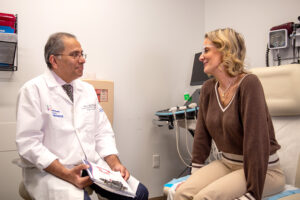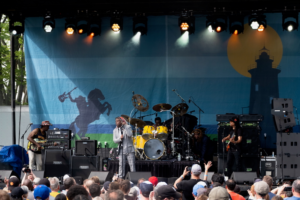Session gives educators the opportunity to learn the history and impact of slavery at a historic site

Historic Hudson Valley (HHV) announced today the return of a National Endowment for the Humanities (NEH) Teachers Institute to Philipsburg Manor, July 14-20, 2019. K-12 teachers from around the country will attend this session aimed at giving educators the tools to teach the difficult subject of slavery in today’s classroom.
“Increasingly, history educators are recognizing that we have not been teaching a comprehensive history of colonial America,” says Margaret Hughes, Associate Director for Education at Historic Hudson Valley. “In particular, we have not presented the history of slavery as intertwined with the development of colonial America, or the contributions of enslaved people in the building of the new nation. This institute seeks to help teachers do just that.”
The program teaches the beginnings of slavery in colonial America, how slavery was codified into law, and the role enslaved people played in building the infrastructure and institutions that drove the expansion of the colonial economy. Importantly, the institute also addresses the personal side of enslavement, focusing on the stories and experiences of enslaved individuals.
The institute draws applicants from all regions of the U.S. who want to learn how to incorporate a comprehensive exploration of slavery in America into their classrooms. This content will be relayed through guest lecturers as well as through powerful resources HHV has developed to help interpret and teach slavery. Guest lecturers include Dr. Daina Ramey Berry, University of Texas at Austin professor and author of The Price for Their Pound of Flesh, Dr. Leslie Harris, Northwestern University professor and author of In the Shadow of Slavery: African Americans in New York City 1626-1863, and James DeWolf Perry, founder of The Tracing Center and co-author of Interpreting Slavery at Museums and Historic Sites.
New this year, the program will include tutorials on HHV’s latest resources for teaching slavery. These include People Not Property: Stories of Slavery in the Colonial North, an interactive online documentary. This website, which launched in May 2019, features more than 20 videos and includes pictures, infographics, and primary documents that explore the true history of slavery in the North, providing an unparalleled resource for both educators to use in their classrooms and the general public.
“Historic Hudson Valley has been researching and sharing the story of Northern slavery at our site, Philipsburg Manor, for more than two decades,” says Elizabeth Bradley. “People Not Property extends this narrative across the colonial North, and shines a light on the lives of individual enslaved people throughout the Mid-Atlantic States. We are grateful to the National Endowment for the Humanities for their support of this important and timely work.”
Another new resource is the powerful dramatic short film Runaway, filmed on-site at Philipsburg Manor and produced by award-winning filmmaker Daniel Fries and institute director Dr. Jacqueline Simmons. This emotional film is based on an actual event that took place at Philipsburg Manor and follows the journey of Sue, an enslaved woman at Philipsburg Manor, as she attempts to help two enslaved men while also protecting her daughter from being sold.






